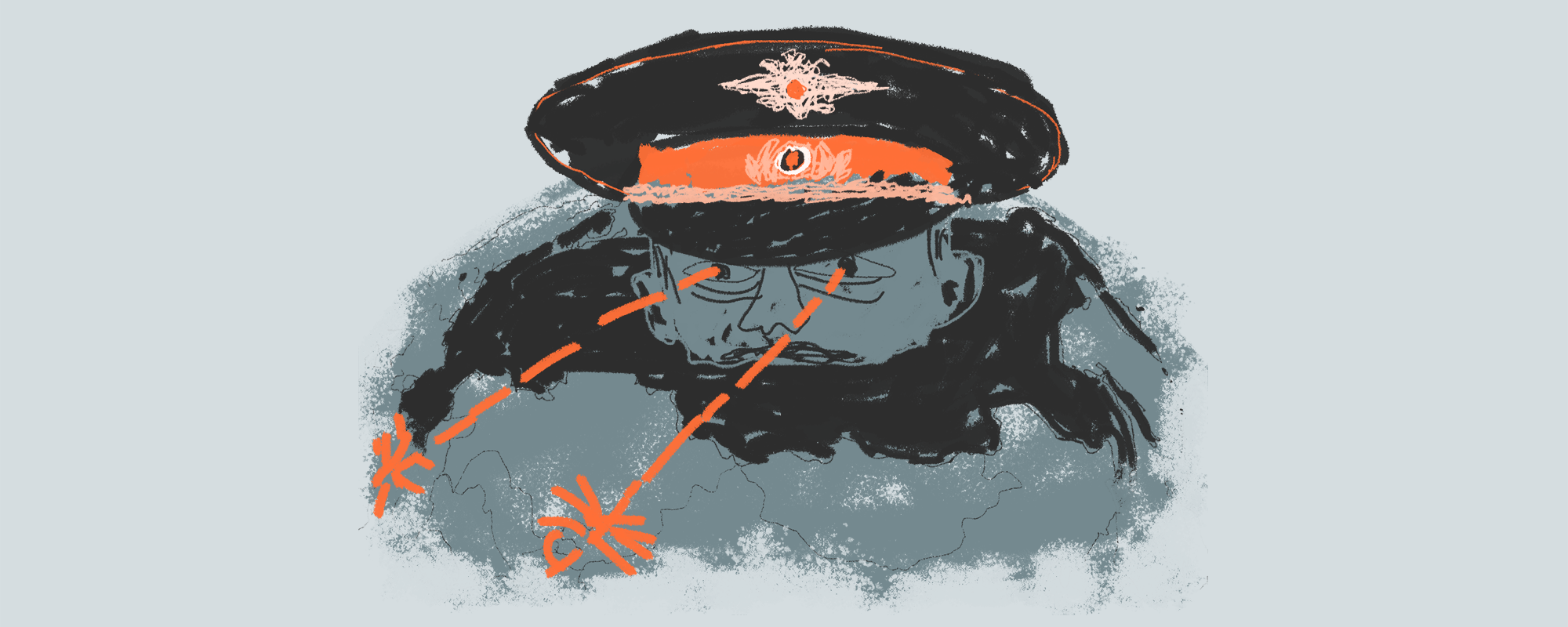By Dan Storyev and Inna Bondarenko
This piece is a part of our new series of short explainers, which aim to illuminate the struggle for human rights in Russia. We hope to publish one every month.
Intro

You might be thinking that Kremlin repression is limited to Russia or, at worst, Ukraine. But it goes much further, crossing borders to target not only Russians but also foreign politicians, journalists, and researchers. For example, politically motivated cases have been launched against Baltic state officials, Western journalists covering Russia (like the reporters in Kursk), and researchers such as the case of Laurent Vinatie (political scientist who pleaded guilty to felony charges of gathering military information). Even organisations like Meta face legal threats. While these actions create problems for those individuals—like restricting travel to Russia-friendly countries—the far more severe repression is aimed at Russian citizens abroad.
That’s what we call transnational repression. According to Freedom House, transnational repression involves governments extending their reach across borders to silence dissent among diasporas. Their tactics might include assassinations, illegal deportations, abductions, digital threats, abuse of Interpol, and family intimidation.
In Russia, transnational repression has grown more visible and severe recently, driven by the Kremlin’s authoritarian tendencies and a desire to control dissidents living abroad. And there are plenty of opponents to be found beyond Russia’s borders — especially now that the full-scale invasion of Ukraine prompted a mass exodus of anti-war Russians out of the motherland, where they risk being hunted down lest they dare to speak out against the war.
Dmitry Medvedev, a former Russian president and current deputy head of Russia’s Security Council, described the anti-war exiles as «traitors who have gone over to the enemy and want their Fatherland to perish».
To get these «traitors» the Kremlin has several tools of transnational repression up its sleeve. The methods go beyond legal mechanisms and extend to covert manoeuvres, diplomatic pressure and even harassment of family members. Here we outline some of the most common methods.
Lawfare

Putin’s Russia is notorious for exploiting technically legal tools like Interpol and extradition treaties to go after the Kremlin’s opponents. Despite making up less than 2% of the global population — and Interpol encompasses nearly every country in the world — Russia is responsible for over 38% of all Interpol Red Notices, making the Kremlin the biggest abuser of the system.
Take the 2012 case of Petr Silaev. The young anti-fascist fled Russia after protesting the destruction of the Khimki Forest outside of Moscow. He was swiftly detained in Spain after becoming the subject of a Red Notice. Spanish authorities initially complied, even adding on their own made-up charge of terrorism, in order to justify the arrest, as the Russian request only mentioned «hooliganism». But eventually, Petr was able to remain in the EU, thanks in large part to Finland granting him refugee status.

In the former Soviet space, the situation is especially dire, as the Kremlin often has the most influence there due to a complex bouquet of treaties and personal relationships. Kazakhstan, for instance, occasionally jails activists at the extradition requests from the Kremlin. Astana has yet to extradite anti-war exiles — except for one former FSB officer who fled into Kazakhstan through an illegal border crossing. However, activists marked by the Kremlin are imprisoned for months in Kazakhstan’s pre-trial detention centers.
It is important to note here that some post-Soviet nations are choosing to resist Putin’s requests. In Armenia, for instance, the local authorities have yet to extradite anti-war activists, even though they do send police officers to investigate the «suspects». We covered one of these cases in greater detail in three Digests on Natalya Taranushenko — an elderly school teacher who had to flee Russia for openly opposing the war and was later apprehended and then released in Yerevan.
Special operations

When legal procedures fail to achieve the desired effect, the Kremlin can resort to more brutal methods. This is a rather tricky topic, as it exists in the liminal space between repression and spycraft. Those targeted aren’t necessarily dissidents in the traditional sense — sometimes they’re former intelligence operatives or rival oligarchs.
Still, this aspect is important to keep in mind. Cases may include kidnappings, assassinations, and poisonings. For instance, in 2019, a Kremlin agent murdered Zelimkhan Khangoshvili, an exiled Chechen militant, in Berlin. The murderer, Vadim Krasikov, whom Putin repeatedly praised, was released from a German prison and sent back to Russia during a historic prisoner swap. Or take the three exiled reporters who have reported poisoning symptoms –– two were poisoned in Germany and one in Georgia.

A particularly clear example of a dissident being targeted is the case of Lev Skoryakin — an anti-fascist dissident who sought safety in Kyrgyzstan. Last year, he was kidnapped by Russian agents and disappeared, until our lawyer found him in a Moscow jail and fought for his eventual release. I wrote more about him in Digest #33.
Partner pressure

Russia still wields influence over some foreign governments, pressuring them to extradite and harass Russian exiles. This often involves backroom deals or threats of economic or political retaliation.
The most infamous example here is the case of the maverick Russian-language rock band Bi-2, who were critical of the war in Ukraine. They were detained in Thailand, apparently on a secret request from the Russian embassy, and threatened with extradition to Russia. Most of the musicians did not even have Russian passports, but the threat was nevertheless imminent, and Kremlin figures were openly gloating about the situation, which was eventually resolved reportedly thanks to the combined efforts of Israeli, Australian and US diplomats.

This is not an isolated case. Well-known Russian artist Maxim Galkin was fined and pushed out of the UAE for speaking out against the war, while anti-war Russian nationals were deported and harassed in Kyrgyzstan and Vietnam, just to name a few more cases. If you would like to read about them in further detail, check out our #29.
Surveillance

Not all of Russia’s repression involves violence — the Kremlin might also use less overt tactics like surveillance. Opposition leaders have repeatedly claimed that they were surveilled by the Russian government, like opposition figure Anastasia Shevchenko who left Russia in 2022 and has since reported that she is being watched.
Russian independent media, in particular, has been rocked by the news of the use of Pegasus spyware on some exiled journalists. Pegasus is an Israeli spyware program beloved by authoritarians around the world — and it is likely that the Kremlin used it to gather data on exiled media professionals. Galina Timchenko, the head of maverick exiled media Meduza was reportedly surveilled with Pegasus.

Generally speaking, surveillance of high-profile exile figures is an open secret. And aside from sending agents, the Kremlin is also known to be pressuring activist exiles into spying, creating a sense of paranoia. One such activist revealed the process of FSB infiltration to Meduza.
Conclusion

Remember that exiled Russians often remain in danger even when abroad. The tools we outline here only scratch the surface. And remember, that while dissidents are abroad, their relatives in Russia remain at risk.
Going after relatives was once limited only to certain regions like Chechnya, but it is now spreading across the entire country. Relatives of the Kremlin’s opponents are pressured, threatened or even detained with the aim to silence them. Parents, children, and spouses have to deal with searches, calls and visits from security forces, along with arrests, intimidation, and threats.

If you are wondering what you can do to support Russian exiles — support initiatives, public and private, to provide shelters and platforms for Russian anti-war exiles, or talk to local Russian anti-war exile organizations and ask about their specific needs. Russian exiles have to live in an atmosphere of constant pressure, but with more support, their burden can surely be eased.



